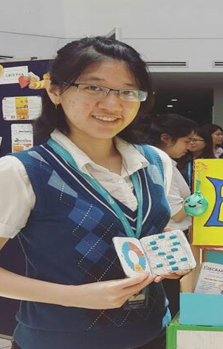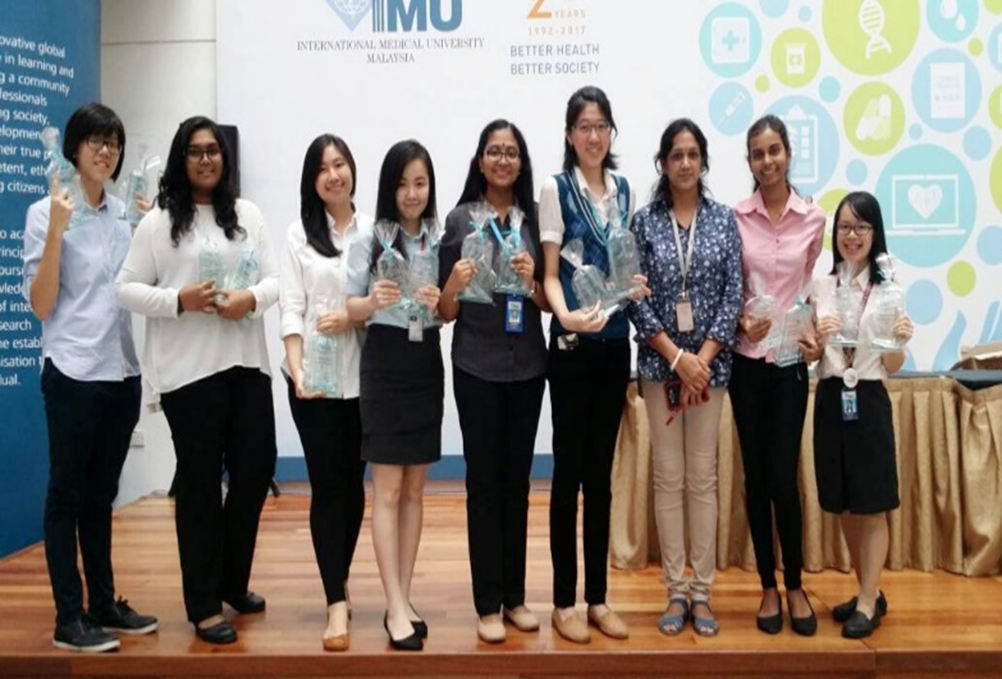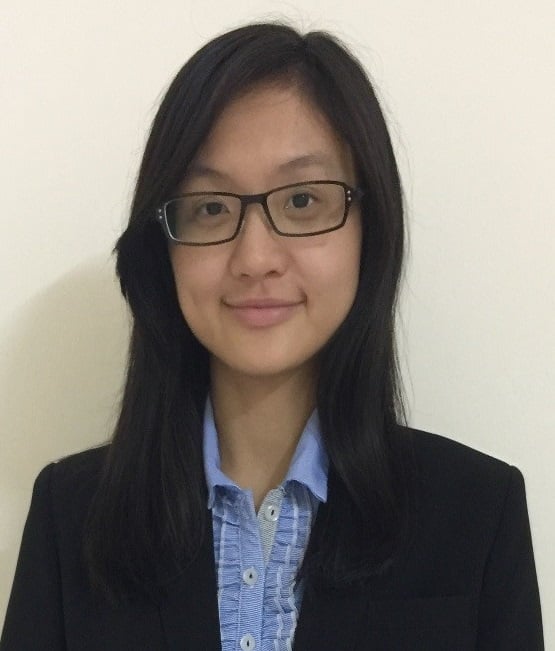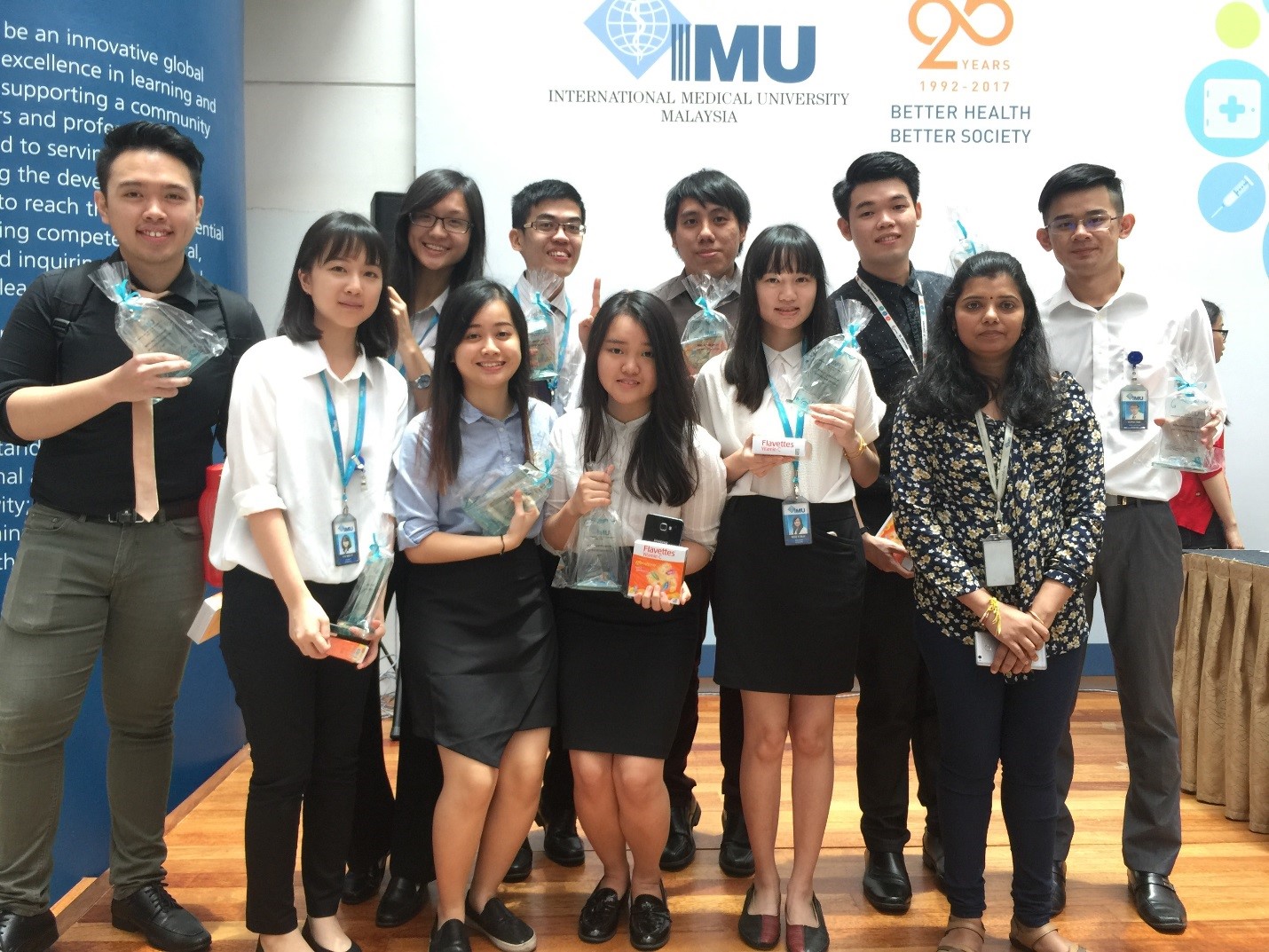In efforts to better meet the training needs of a new generation of healthcare professionals, simulation-based education is growing and evolving rapidly. Often, pharmacy school’s access to authentic pharmaceutical industry training is limited. Simulation thus offers junior students preliminary insights into pharmaceutical production processes and challenges, and helps prepare them to undertake workplace learning in their later semesters.
The IMU BPharm Model Industry Concept (MIC) was introduced in 2008 for just this purpose. This MIC simulation also adds value to learning by enabling students to undertake collaborative learning with a high degree of autonomy, to develop and demonstrate leadership and team-working traits such as assertiveness, effective communications, responsibility, accountability, mutual trust and respect.
Since its inception, the MIC has continued to evolve, and includes students form the BSc in Pharmaceutical Chemistry. The 2017 MIC Students acquire knowledge through talks from industry experts, through videos and virtual learning, on pharmaceutical production, quality control and assurance processes. Knowledge acquired from the MIC helps pharmacy students fill the gap between classroom learning and workplace learning.  The simulation provides a good mental picture of what to expect when the students undertake their industrial placement in Year 4. Teams of students then showcased their learning by describing principles of Current Good Manufacturing Practice (cGMP) and their applicability to the production and quality assurance of pharmaceuticals. Ethical considerations relevant to the evaluation of drug products in humans were also discussed. The final part of the Module familiarises students with pharmaceutical industrial practice. The closing MIC event on 29 September 2017 was an open exhibition of the student team posters at the Bukit Jalil campus. Visitors, including faculty and students of all Schools in the University, were able to gain insight regarding pharmaceutical industry processes. The posters were assessed collaboratively by Pharmaceutical Technology faculty together with pharmaceutical industry experts and the students themselves, using a process of peer evaluation.
The simulation provides a good mental picture of what to expect when the students undertake their industrial placement in Year 4. Teams of students then showcased their learning by describing principles of Current Good Manufacturing Practice (cGMP) and their applicability to the production and quality assurance of pharmaceuticals. Ethical considerations relevant to the evaluation of drug products in humans were also discussed. The final part of the Module familiarises students with pharmaceutical industrial practice. The closing MIC event on 29 September 2017 was an open exhibition of the student team posters at the Bukit Jalil campus. Visitors, including faculty and students of all Schools in the University, were able to gain insight regarding pharmaceutical industry processes. The posters were assessed collaboratively by Pharmaceutical Technology faculty together with pharmaceutical industry experts and the students themselves, using a process of peer evaluation.
Pharmaceutical Industry experts provided valuable, real-world feedback on the posters. The experts agreed that the MIC is a good platform for students to understand industrial processes and regulatory control, helping prepare students for workplace learning in pharmaceutical industry.






No approved comments.